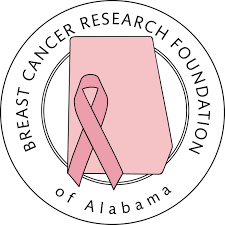Grants or Gifts Relating to Women in Higher Education
Posted on Dec 16, 2024 | Comments 0
Here is this week’s news of grants and gifts that may be of particular interest to women in higher education.
 Winston-Salem State University in North Carolina has received a $499,976 grant from the Department of Justice’s Office of Violence Against Women to fund a new initiative aimed at preventing stalking, domestic violence, dating violence, and sexual assault on campus and in the local community. The RamSafe program will be overseen by Candice Jackson, assistant vice chancellor of student affairs for health and well-being. The grant will fund the development of workshops and awareness campaigns to educate students, faculty, and staff on domestic violence prevention and intervention.
Winston-Salem State University in North Carolina has received a $499,976 grant from the Department of Justice’s Office of Violence Against Women to fund a new initiative aimed at preventing stalking, domestic violence, dating violence, and sexual assault on campus and in the local community. The RamSafe program will be overseen by Candice Jackson, assistant vice chancellor of student affairs for health and well-being. The grant will fund the development of workshops and awareness campaigns to educate students, faculty, and staff on domestic violence prevention and intervention.
 Vanderbilt University in Nashville, Tennessee, has received a $3.3 million grant from the Advanced Research Projects Agency for Health’s Sprint for Women’s Health initiative. The funds will support research into uterine-targeted delivery systems for therapeutics known as tocolytics. Delivered directly to the uterus, the treatment aims to prolong pregnancies by suppressing premature uterine contractions.
Vanderbilt University in Nashville, Tennessee, has received a $3.3 million grant from the Advanced Research Projects Agency for Health’s Sprint for Women’s Health initiative. The funds will support research into uterine-targeted delivery systems for therapeutics known as tocolytics. Delivered directly to the uterus, the treatment aims to prolong pregnancies by suppressing premature uterine contractions.
 The Breast Cancer Research Foundation of Alabama has recently bestowed a total of $1,125,000 in funding to support 22 breast cancer research projects across the state. The grant awardees include scholars from Alabama State University, Auburn University, Tuskegee University, the University of Alabama at Birmingham, the University of Alabama, and the University of South Alabama.
The Breast Cancer Research Foundation of Alabama has recently bestowed a total of $1,125,000 in funding to support 22 breast cancer research projects across the state. The grant awardees include scholars from Alabama State University, Auburn University, Tuskegee University, the University of Alabama at Birmingham, the University of Alabama, and the University of South Alabama.
 The University of North Carolina at Greensboro has been awarded a $784,369 grant from the National Institutes of Health to reduce barriers Latina mothers face when breastfeeding. The project will examine the effectiveness of mothers who participate in the United States Department of Agriculture’s Special Supplemental Nutrition Program for Women, Infants, and Children, The program provides different breastfeeding or formula-feeding packages to low-income parents. The research team at UNCG will study if mothers with this support have higher rates of breastfeeding and self-efficacy, as well as track infants’ risk for obesity through their first six months of life.
The University of North Carolina at Greensboro has been awarded a $784,369 grant from the National Institutes of Health to reduce barriers Latina mothers face when breastfeeding. The project will examine the effectiveness of mothers who participate in the United States Department of Agriculture’s Special Supplemental Nutrition Program for Women, Infants, and Children, The program provides different breastfeeding or formula-feeding packages to low-income parents. The research team at UNCG will study if mothers with this support have higher rates of breastfeeding and self-efficacy, as well as track infants’ risk for obesity through their first six months of life.
Filed Under: Grants • STEM Fields








